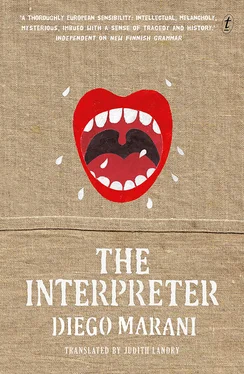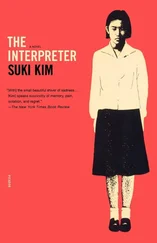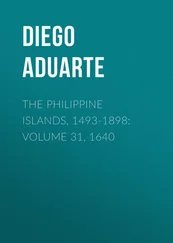‘One moment, please,’ said the nurse, picking up a phone. The red-haired woman who came towards me in the porter’s lodge was a complete stranger to me.
‘Are you Frau Goldstein?’ I asked in amazement.
‘What is it you want?’ she asked curtly.
‘I’d like to see Mr Ortega,’ I said, equally brusque.
‘There’s no Mr Ortega here,’ she shot back, shaking her head.
‘All right then, Mrs Popescu. Is Roxana Popescu still in the German section?’
‘I’m sorry, sir, I don’t know what you’re talking about, and anyway, we’re not allowed to issue information concerning our patients,’ she snapped, virtually pushing me out of the lodge.
She closed the glass door and went off down the corridor towards the lift. Undeterred, I went out into the road and round to the back of the building, where Dr Barnung had his consulting room. The blinds were down; the letterbox was stuffed with mail of every kind. I rang the bell repeatedly, then peered into the waiting room for signs of life. Nothing. In the half-light, everything seemed to be just as it was at the time of my first visit; even the magazines on the table seemed to be the same. I walked off in utter bewilderment, and wandering round the tree-lined avenues and trim little villas I finally realised that I was lost; I had to walk a long way before I found a bus stop. When it was dark, though, I went back to the villa, with a jemmy and a torch I’d bought in a hardware shop. I climbed over the garden fence and went round to the back of the building. I recognised the window to Barnung’s study, the windowsill where the cat had been dozing on that long-ago winter afternoon when Dr Barnung had given me his diagnosis. I forced the blind and climbed into the consulting room, to find the same old heavy wooden furniture, the same prints of the birds of prey. I was looking for the filing cabinet, which I remembered as being near the window. I leafed through the files and found the letter ‘B’, but there was no folder with my name, nor was there anything on Ortega, Vidmajer, Vandekerkhove or Popescu. There were plenty of unknown names, though, and the dates when their owners had been admitted were all subsequent to my departure, as though the original patients had been replaced by others within a matter of weeks. I closed the filing cabinet and slipped out, squeezing myself under the blind.
No sooner was I back on the road than I heard a rustling sound behind me. I jumped aside and ducked, then rolled along the grass, trembling with fear, only to catch a brief glimpse of a figure crouching behind the hedge. I ran off at breakneck speed, but soon I could hear footsteps other than my own, and my pursuer’s laboured breathing; to my horror, he was gaining ground. I hurtled down the empty road as fast as my legs would carry me, among parked cars and dark gardens, trying to put more space between me and the man behind me and reach the lit avenue I could see beyond the trees. But at a turn in the road I found myself confronted by two other shadowy figures blocking my path. Someone punched me in the stomach, winding me; I fell to the ground amidst a hail of blows from boots that were all too solid, tried vainly to extricate myself from the clutch of hands which were dragging me along the asphalt; desperate by now, I covered my head with my arms and sank down against a car in some attempt at self-protection, only to find that someone was going through my pockets and virtually pulling the clothes off my back. I heard an exchange of muffled remarks, a bit more panting and gasping, a shuffle of confused footsteps, and then the men moved off into the darkness. I ran my hands cautiously over my aching body; blood was running into my eyes, blurring my vision. Pulling myself up by a nearby railing, I managed to get to my feet; but not for long. I’d only gone a few dozen yards before I was obliged to stretch out on the damp grass of a strip of greenery at the edge of the road. With difficulty, my hands found their way into my pockets — all the money had gone, even the notes I’d put into an envelope and attached to the inside of my belt. I looked up at the star-filled sky, wondering how my own star could possibly have sunk so low.
I could at least go back to my hotel and retrieve the odd garment and Tibor Preda’s precious passport. I sold such items as I could and left the rest, slipping out of the hotel by night without paying the bill and spending time begging at the station, where I soon made friends: two of the porters, the woman at the paper stall, the Turk who cleaned the lavatories. Thanks in part to them, I managed to scrape together enough to live on, but the problem was where to sleep, because I couldn’t stay in the station overnight, and had to wander into dangerous outlying areas to take shelter in old factories or under viaducts. I went back to the clinic on numerous occasions in search of Dr Barnung, but the blinds of his consulting room were always down, and no one seemed to have heard of him. I tried in vain to get into the building which, in times gone by, I’d known like the back of my hand, and had myself manhandled by the guards for my pains; the nurses shrugged their shoulders at my questions and assumed a distant air when I approached the reception desk, giving me perfunctory or irritated answers and refusing to summon the false Frau Goldstein when I asked to speak to her. My run-down appearance was hardly in my favour: I had a long beard, my hair was dishevelled and my clothes filthy beyond belief. I walked with a limp, dragging my right foot; livid with cold, my hands shook like those of a man with palsy. But at least I no longer had to hide myself when my throat tightened and I began to caw and hiss; indeed, my convulsions were most effective in gaining me the sympathy of the passers-by, who would never have suspected me of faking such spasms. However eager they might be to catch their trains, commuters turned pale at the sight of me gibbering away on my bit of cardboard; they threw down generous handfuls of coins and moved off, looking worried. There was a faint scent of spring in the air and even the rain had a different smell, of freshly tilled earth and grass, but the nights were still cold. The police wouldn’t allow me to sleep in the warm near the vents in the underground, or in an underpass, so I slept by day, in a more or less upright position on the ballast near the railway station. As soon as they saw me beginning to loll against the wall, a truncheon would be pressed into action and the policeman on duty would send me packing. At times when I knew they would be there, I would drag myself to the ticket office and on to the relevant platform to look at the trains to Geneva, peer at the busy attendants through the windows of the wagons-lit, at the inspectors with their red shoulder straps, and at the first luggage-laden passengers; scanning their quintessentially Swiss faces, I felt like hugging them, telling them that I was every bit as Swiss as they were, and that I wanted to go home. But right from the first days when I’d taken up residence in the station my eye had been caught by the Geneva dailies on the newsstand, with my photograph on the front page, and the headlines of Romanian papers translated into French. I was a wanted person even in my own land. The story of the blameless high-ranking civil servant turned assassin and bandit was everywhere. I was cornered, and sometimes I felt like giving myself up, going to die peacefully in a cell, allowing myself to be sentenced to hard labour without even bothering to explain what had happened to me. I would be taken care of, looked after; I would have company, perhaps even sympathy. But I couldn’t die without knowing who had killed Stauber, what had happened to Ortega and the others, where Dr Barnung was hiding and how the interpreter was involved in this whole business.
Читать дальше












